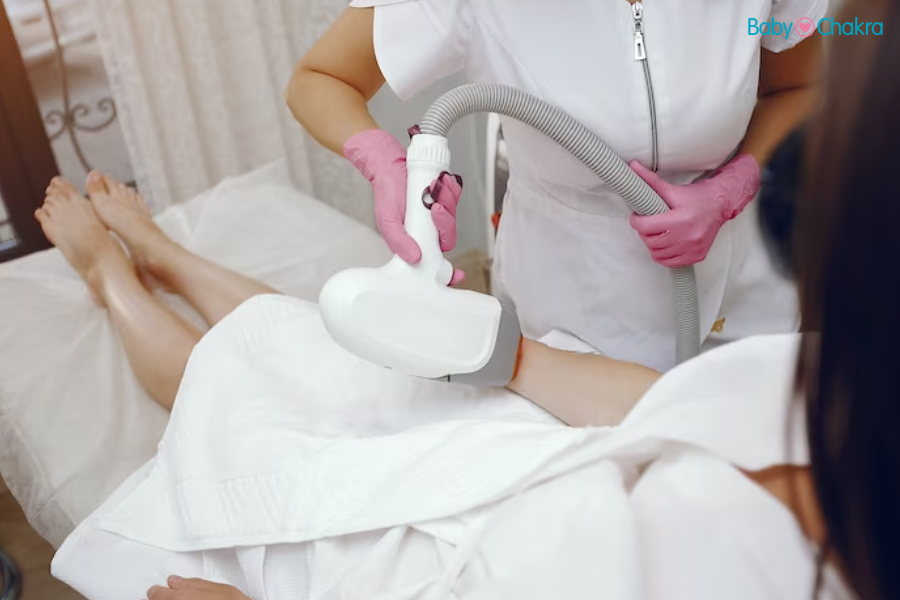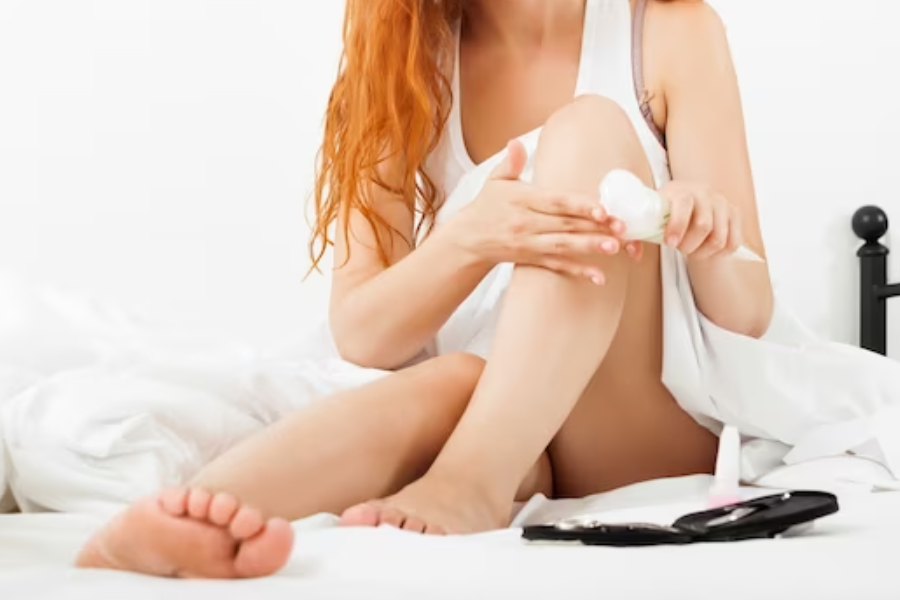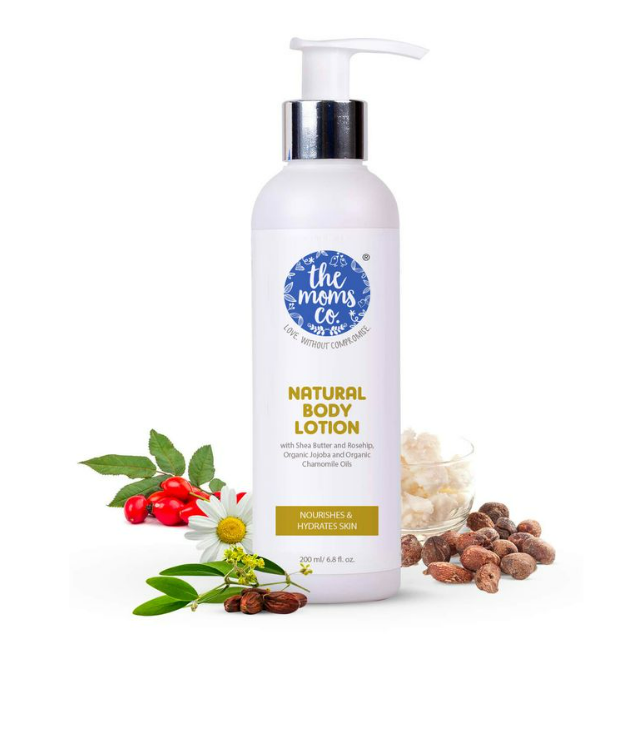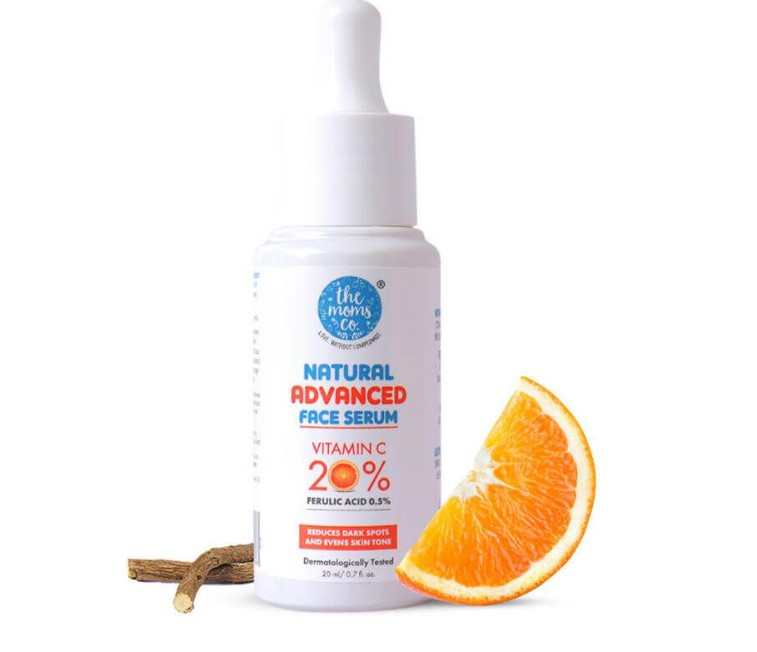
Laser Hair Removal During Pregnancy: Is it Safe?
11 May 2023 | 4 min Read
Manisha Pradhan
Author | 1053 Articles
As an expecting mother, your body experiences a myriad of changes. One of these changes may include an increase in hair growth due to hormonal fluctuations. This leads many pregnant women to question the safety of using hair removal methods like laser hair removal during their pregnancy.
Is it safe to use laser hair removals during pregnancy? Find out all your answers here.
Is It Safe To Use Hair Removers During Pregnancy?
Hair removal during pregnancy is generally considered safe, but it’s crucial to understand that not all hair removal methods are created equal, and some might carry more risks than others. Moreover, your skin becomes more sensitive during pregnancy, which can potentially lead to skin reactions.
What Is Laser Hair Removal?
During a laser hair removal procedure, a beam of light is aimed at the region you want to remove hair from. The laser sends heat down the hair shaft, into the follicle and targets the dark pigment in each hair. The heat destroys the follicle and stops the hair from growing back again.
Laser Hair Removal During Pregnancy; Is It Safe?
Even though laser hair removal provides a more permanent solution, most doctors recommend avoiding laser hair removal during pregnancy, even though laser hair removal is generally considered a safe procedure. That’s because no studies have been done to prove that it’s safe for mothers and babies.
Dermatologists and doctors usually advise pregnant women to avoid the procedure.
Alternatives To Laser Hair Removals During Pregnancy
Shaving
Shaving is one of the safest methods of hair removal during pregnancy. It’s non-invasive and only removes hair at the skin’s surface, posing a minimal risk. However, as your belly grows, reaching some areas can become challenging.
Use a razor or an electric shaver with a flexible handle to make it easier to remove hair from hard-to-reach spots.

Waxing
Waxing is another common method. While it’s generally safe during pregnancy, it might be more painful due to increased skin sensitivity.
If you’re experiencing varicose veins or have been diagnosed with gestational diabetes, it’s best to avoid waxing, as these conditions can make your skin more susceptible to infection.
Hair Removal Creams
Hair removal creams, also known as depilatories, break down the protein structure of the hair, making it easy to wipe away. However, they contain chemicals that may cause skin reactions and can also be harmful to the baby.
Conducting a patch test before using the product and consulting your doctor before using it, is advisable.
Safety Tips For Hair Removal During Pregnancy
Regardless of the method you choose, there are a few general tips to ensure your safety:
Always do a patch test: Pregnancy can make your skin more sensitive and reactive. Always test the product on a small area first.
Hydrate and soothe your skin: After hair removal, use a fragrance-free moisturiser to soothe and hydrate your skin.
Consult your healthcare provider: If you’re unsure about a method, always consult your healthcare provider. They can provide you with advice tailored to your specific health condition and pregnancy.
Most hair removal methods are safe during pregnancy, but each comes with its considerations. An increase in skin sensitivity may change your tolerance to certain hair removal methods. The lack of comprehensive research on some methods, like laser hair removal during pregnancy, calls for caution.
Always prioritise your safety and comfort, and when in doubt, consult with your doctor.
Recommended safe skincare products for pregnancy
Also Read:
Yes! There Is A Proper Way To Use A Face Mist During Pregnancy
7 Self-Massaging Tips For Glowing Skin Health During Pregnancy
Cover image source: freepik
A


Related Topics for you
Suggestions offered by doctors on BabyChakra are of advisory nature i.e., for educational and informational purposes only. Content posted on, created for, or compiled by BabyChakra is not intended or designed to replace your doctor's independent judgment about any symptom, condition, or the appropriateness or risks of a procedure or treatment for a given person.


